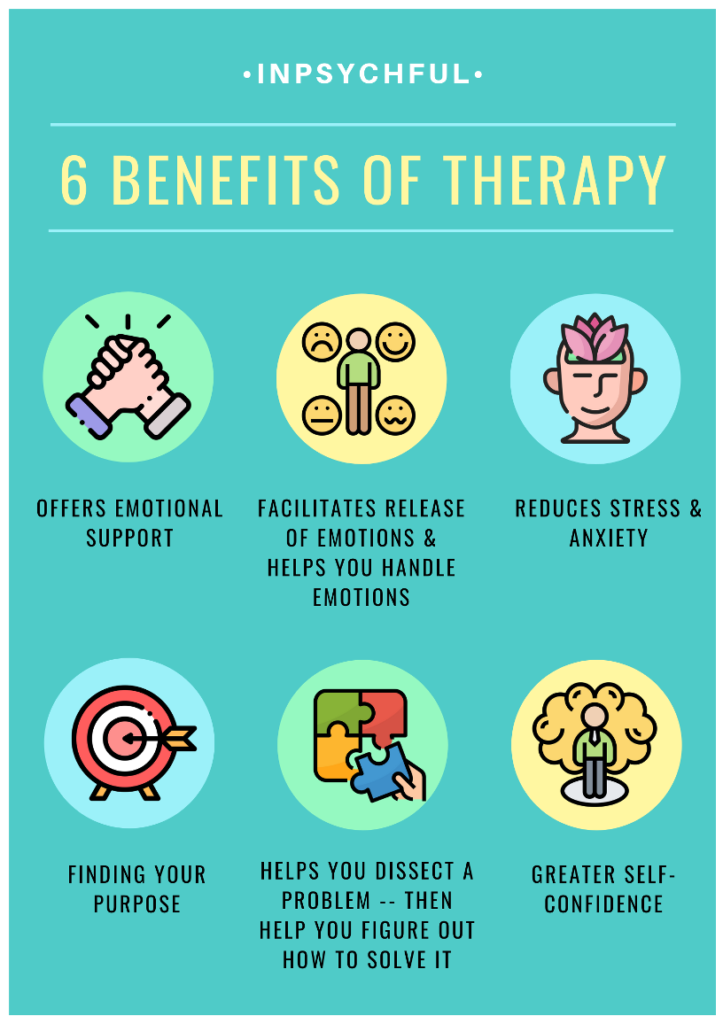Everyone has a go-to coping mechanism when life throws us lemons. Hopefully these coping mechanisms are healthy in helping us cope with life stressors. But no matter what way we deal with, everyone could use a little extra support in handling challenges in life, and one of the ways is through talking with a mental health professional.
Though stigmatization in the aspect of mental health in Singapore is still an ongoing challenge, more people are open about talking and discussing issues related to mental health (Lim, 2019). As such, this article aims to ride on that, by giving a deeper insight on the nature of therapy: what it looks like, how we can benefit from therapy, as well as what are some things to look out for when choosing a therapist in Singapore.
What Is Therapy?
The process of meeting with a therapist to resolve problematic behaviors, beliefs, feelings, relationship issues, and/or somatic responses (sensations in the body)
(What Is Therapy, 2018)
1. There is no hard and fast rule on who therapy is for
Indeed, the two main goals of therapy is mainly to treat mental disorders, and/or to promote mental health. Most people assume that therapy is solely for individuals with mental illness, or that therapy is a sign of weakness. But the truth is, everyone can benefit from therapy (Howes, 2014).
Infact, there is no hard or fast rule for who therapy is for. Though beginning therapy is a big step, therapycan serve as a platform for individuals to go through a process of self-discovery, as well as better self-awareness. Therapy also equips us with problem-solving and guides us on healthier ways to handle our emotions when faced with problems or stressors, even if they aren’t dramatically life-altering or traumatic.
2. Therapy benefits us in various ways
Since big and small problems are going to come up from time to time, knowing how to deal with them in a healthy way is an important skill (Walton, 2017). As such, therapy equips us with essential problem-solving skills and emotional management skills which will serve us a long way. Aside from these benefits, below are a few more benefits of therapy.

3. When Choosing A Therapist, here are some things to look out for
Rapport with therapist
Therapeutic rapport is an essential part of a healthy therapist-client relationship. Being able to work well with your therapist allows clients to feel safe and respected so that therapy can be successful (Fritscher, 2020).
Therapeutic rapport can therefore allow for greater mutual trust and respect. However, inorder for that to happen, the therapist has to also be transparent in the limits of confidentiality, in letting clients know their rights.
The therapist provides you with information about your rights as a client: confidentiality, office policies, and fees so you can fairly consent to your treatment (Rubinstain, 2018).
Psychologists take client’s privacy very seriously, and confidentiality is a central part of psychology’s code of ethics. Before commencing therapy, therapists have to inform clients on the limits of confidentiality beforehand. In Singapore, all registered psychologists have to adhere to the SPS code of ethics.
Verify if your clinician/psychologist/counsellor is registered in Singapore
Before you commence your therapy session, you can head over to Singapore Psychological Society (SPS) to verify if your psychologist is registered in Singapore – click here:
On top of that, accreditation for Singapore Counsellors can also be found in the following links:
For Singapore Association for Counselling (SAC), click here: http://sacsingapore.org/registry/registered-counsellors/list-of-registered-counsellors/
For Association of Psychotherapists and Counsellors Singapore (APCAS), click here:
https://apacs.org.sg/membership/members-directory/
Counsellors, Therapists, Psychologists – What the differences are in the context of Singapore?
References
Fritscher, L. (2020, February 20). Successful Mental Health Treatment Depends on Good Therapeutic Rapport. Retrieved from https://www.verywellmind.com/therapeutic-rapport-2671659
Lim, J. (2019, October 12). The Big Read: With youths more open about mental health, it’s time others learn to listen. Retrieved from https://www.todayonline.com/big-read/big-read-youths-more-open-about-mental-health-its-time-others-learn-listen
Howes, R. (2014, July 1). Who Doesn’t Need Therapy? Retrieved from https://www.psychologytoday.com/us/blog/in-therapy/201407/who-doesnt-need-therapy
Rubinstein, N. (2018, September 7). 50 Warning Signs of Questionable Therapy and Counseling. Retrieved from https://www.goodtherapy.org/blog/warning-signs-of-bad-therapy/
Walton, A. G. (2017, June 2). 11 Intriguing Reasons To Give Talk Therapy A Try. Retrieved from https://www.forbes.com/sites/alicegwalton/2014/06/03/11-intriguing-reasons-to-give-talk-therapy-a-try/#157b51754ebb
What Is Therapy? (2018, August 1). Retrieved from https://www.goodtherapy.org/what-is-therapy.html
